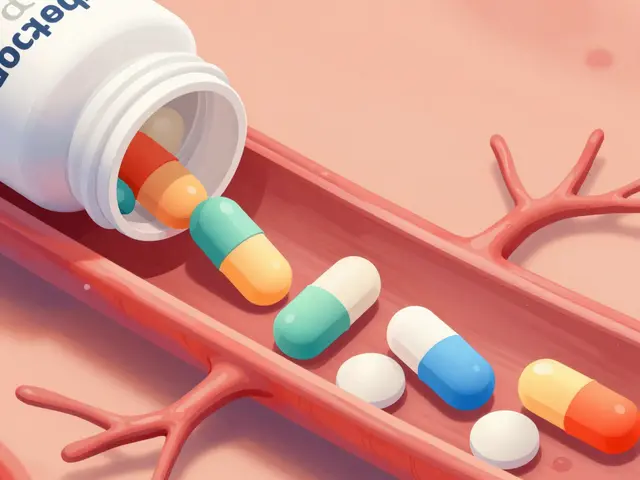Emotional Impact: How Illness, Medication and Life Events Affect You
Feeling overwhelmed by a diagnosis, a side effect, or a life change is normal — emotional impact matters as much as physical symptoms. When anxiety, low mood or stress show up, they change how you sleep, eat, take medication and connect with people. This tag gathers practical articles about how health and treatments affect feelings and choices, from anxiety and addiction to medication effects and social challenges.
You will find posts on anxiety and addiction, atomoxetine’s effect on work, autism and bullying, and real talk about drugs that change mood like antidepressants or benzodiazepines. We also cover how chronic illness, pain medicines, or fertility and weight-loss drugs can shift mood and motivation.
Quick checklist: name the feeling, track when it started, note any new meds or stressors, and rate intensity from 1 to 10. Share this list with your doctor or therapist — it speeds care and helps avoid guessing.
If a medication seems to cause mood changes, don’t stop suddenly. Ask your prescriber about dose changes, timing, or safer alternatives. Some posts here explain switching plans for drugs like antidepressants, antiepileptics, or opioids.
Emotional impact isn’t only about meds. Chronic pain, breathlessness, or sleep problems make people withdraw. Practical steps—join a support group, set small goals, keep a daily routine—help rebuild energy and social life.
Seek urgent help if you have thoughts of harming yourself or others, severe isolation, or sudden personality changes. For less urgent but worrying shifts, your GP, psychiatrist, or a counsellor can assess medication or therapy options.
Read posts here like 'Anxiety and Addiction' (real-life links), 'Atomoxetine and career', 'Protecting Autistic Children Against Bullying', and 'Imipramine Timing' for practical help. Each article aims to explain causes, signs and steps you can try right away.
Small daily habits matter: short walks, one tech-free hour before bed, naming three good things each day, and breathing exercises when panic rises. Track progress weekly — small wins add up.
Caregivers: listen without fixing, set boundaries, and get respite. Use clear notes about meds and mood changes so appointments are focused and useful.
If you're unsure where to start, pick one small step today — check a med list, join one support group, or make an appointment. The goal is steadier days, not perfection. Browse the tag to find articles that fit your situation.
Common emotional side effects of medications
Common emotional side effects include low mood, increased anxiety, irritability, emotional blunting, and sleep changes. These can show within days for some drugs or after months for others. Track timing and dose links. If loss of joy or new panic appears, call your prescriber. Often a dose tweak, timing change, or switching drug fixes the issue.
Where to read next
Where to read next: start with 'Anxiety and Addiction' for coping steps, then 'Atomoxetine and career' if medication affects work. 'Protecting Autistic Children Against Bullying' has practical family tips. Use the site search to filter by symptoms (sleep, mood, panic). Bookmark useful posts and bring them to your next appointment. Need urgent help? Call local emergency services right away today.
Facing a spina bifida diagnosis during pregnancy can be overwhelming for expecting parents. The article delves into the emotional impact, offering insights, interesting facts, and practical tips to help parents cope with the diagnosis and prepare for what's ahead. Understanding the condition and knowing how to navigate the myriad of emotions is crucial for parental well-being.



